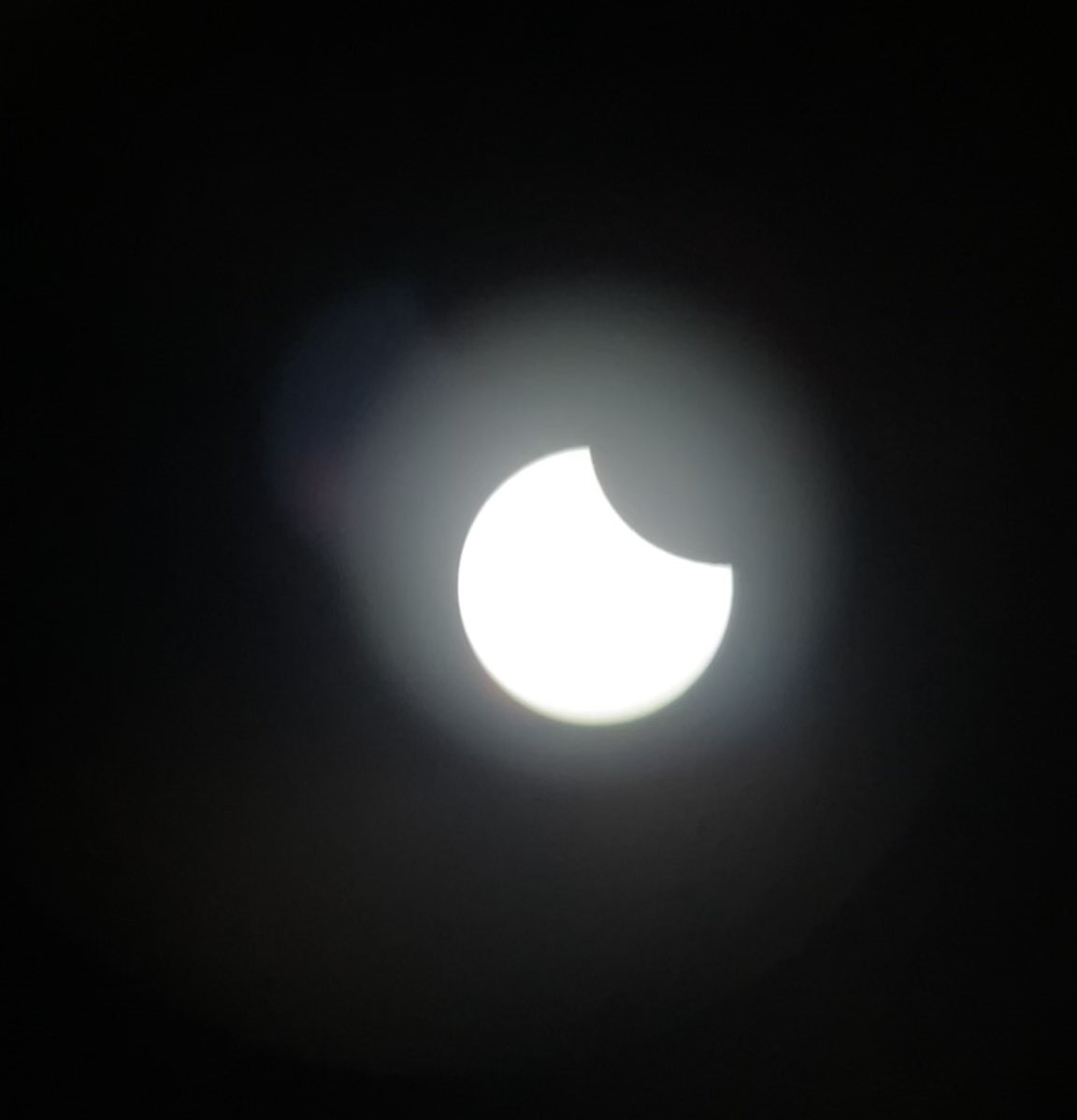

(Photo provided by Dr. Alfredo Caprineti)
Many Londoners may have failed to notice the partial solar eclipse last Tuesday, October 25, despite some coverage of science media.
The phenomena, which was visible from Western Europe and Asia, happened from 10:08 am to 11:51 am BST.
Dr. Alfredo Caprineti, an Italian astrophysicist and science writer for IFLSience, stopped on that Tuesday morning to look at the skies and enjoy the astronomical phenomena.
“In general, eclipses -partial, total, or annular- happen slightly more than twice a year due to the peculiar tilts between the orbit of the Moon around the Earth and of the Earth around the Sun”.
As for the city of London, Dr Caprineti said “we can probably estimate about a handful [of eclipses] per decade”.
BBC’s weather forecaster Thomas Schafernaker published a video on Twitter showing the partial block of sunlight over the skies of Great Britain.
#PartialSolarEclipse seen from Europe to India #London 11:10am #SolarEclipse2022 pic.twitter.com/fXBSZiAeBh
— Tomasz Schafernaker (@Schafernaker) October 25, 2022
The maximum point of the eclipse was registered in Russia, but in the United Kingdom, the Moon blocked approximately 35 percent of the Sun’s light at 10:59 am, making it an observable spectacle for those who had eye protection.
Caprineti explained that despite having eclipses every year, it is not common to have visible solar eclipses over the skies of London.
According to the scientist, the past decade London saw two eclipses whilst the 2020s will see four.
Dr. Caprineti also weighted in the little coverage the eclipse had in London and throughout the United Kingdom by saying that, it was “a bit disappointing”.
He said “every cosmic phenomenon, even the most mundane should be celebrated”.
The next partial solar eclipse that can be seen from Western Europe will take place on Tuesday, 29 March 2025.
Far ahead, a total solar eclipse visible from Iceland, north Portugal and Spain will happen on Wednesday, August 12, 2026
Furthermore, on Monday, August 2, 2027 there will be a total eclipse in Gibraltar and southern Spain and partial in the rest of Europe.
Dr. Alfredo Caprineti recognised that people should be interested more in astronomy and in what is going on in the solar system and the universe.
“Astronomy is the oldest science. I think people are naturally curious about what is out there in the cosmos”.
He said that more education around astronomy is needed. “It is a crucial aspect of the work of astronomers and science communicators, so it is important for the media to take an interest in what happens in the sky”.
Up next, a lunar eclipse will take place on next Tuesday and will not be visible from the United Kingdom. The display will be observable in the Pacific.